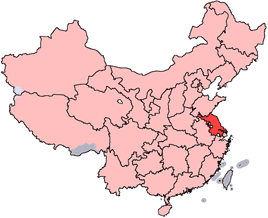Protein adulteration in China
Protein adulteration in China refers to a series of food safety incidents in China, where certain protein foods were found to be adulterated with unapproved substances. These incidents have raised significant concerns regarding food safety standards and regulatory oversight in the country. Protein adulteration not only poses serious health risks to consumers but also undermines trust in the food industry.
Background[edit | edit source]
Food adulteration involves the addition of non-authentic substances or the removal or replacement of genuine substances without the consumer's knowledge, for economic gain by the seller. In China, the rapid industrialization and the immense pressure to meet both domestic and international food demand have sometimes led to compromised food safety standards.
Major Incidents[edit | edit source]
One of the most notorious cases of protein adulteration in China was the 2008 Chinese milk scandal. In this incident, milk and infant formula were adulterated with melamine, a chemical used in plastics and fertilizers. Melamine was added to milk products to falsely elevate the protein content measured during quality tests. This scandal resulted in six infant deaths from kidney stones and renal failure, and an estimated 300,000 victims suffered various health issues.
Another example includes the adulteration of pet food, which also involved the addition of melamine to protein products. This incident had a global impact, affecting pets in countries where the adulterated products were exported.
Health Risks[edit | edit source]
The health risks associated with protein adulteration can be severe. Melamine, for instance, can cause kidney stones and renal failure when ingested in significant amounts. The long-term health effects of consuming adulterated protein products can include chronic kidney disease and potential risks to children's development.
Regulatory Response[edit | edit source]
In response to these incidents, the Chinese government has taken steps to strengthen food safety regulations and oversight. This includes the establishment of the China Food and Drug Administration (CFDA), which is responsible for monitoring food safety and enforcing regulations. The government has also implemented stricter penalties for violations of food safety laws.
Public Reaction[edit | edit source]
Public reaction to protein adulteration incidents has been one of outrage and concern. These incidents have led to increased public demand for transparency, stricter food safety regulations, and better enforcement. There has also been a growing interest in organic and locally sourced foods, perceived to be safer and of higher quality.
Conclusion[edit | edit source]
Protein adulteration in China highlights the challenges of ensuring food safety in a rapidly growing and globalizing food market. While regulatory reforms have been implemented, ongoing vigilance, public education, and international cooperation are essential to prevent future incidents and protect public health.
Search WikiMD
Ad.Tired of being Overweight? Try W8MD's physician weight loss program.
Semaglutide (Ozempic / Wegovy and Tirzepatide (Mounjaro / Zepbound) available.
Advertise on WikiMD
|
WikiMD's Wellness Encyclopedia |
| Let Food Be Thy Medicine Medicine Thy Food - Hippocrates |
Translate this page: - East Asian
中文,
日本,
한국어,
South Asian
हिन्दी,
தமிழ்,
తెలుగు,
Urdu,
ಕನ್ನಡ,
Southeast Asian
Indonesian,
Vietnamese,
Thai,
မြန်မာဘာသာ,
বাংলা
European
español,
Deutsch,
français,
Greek,
português do Brasil,
polski,
română,
русский,
Nederlands,
norsk,
svenska,
suomi,
Italian
Middle Eastern & African
عربى,
Turkish,
Persian,
Hebrew,
Afrikaans,
isiZulu,
Kiswahili,
Other
Bulgarian,
Hungarian,
Czech,
Swedish,
മലയാളം,
मराठी,
ਪੰਜਾਬੀ,
ગુજરાતી,
Portuguese,
Ukrainian
Medical Disclaimer: WikiMD is not a substitute for professional medical advice. The information on WikiMD is provided as an information resource only, may be incorrect, outdated or misleading, and is not to be used or relied on for any diagnostic or treatment purposes. Please consult your health care provider before making any healthcare decisions or for guidance about a specific medical condition. WikiMD expressly disclaims responsibility, and shall have no liability, for any damages, loss, injury, or liability whatsoever suffered as a result of your reliance on the information contained in this site. By visiting this site you agree to the foregoing terms and conditions, which may from time to time be changed or supplemented by WikiMD. If you do not agree to the foregoing terms and conditions, you should not enter or use this site. See full disclaimer.
Credits:Most images are courtesy of Wikimedia commons, and templates Wikipedia, licensed under CC BY SA or similar.
Contributors: Prab R. Tumpati, MD


